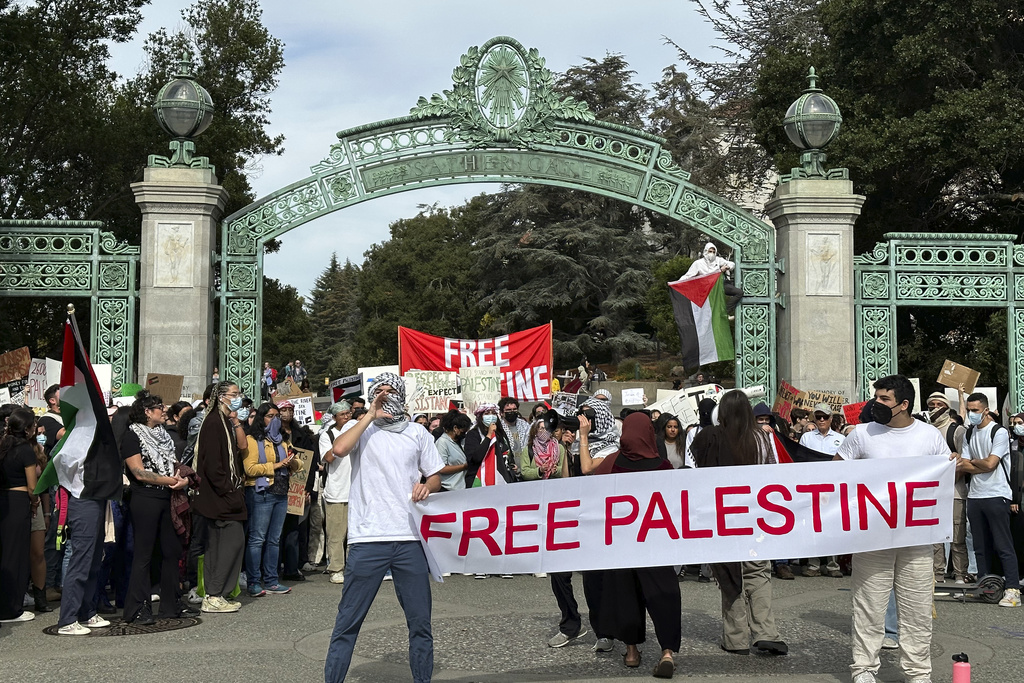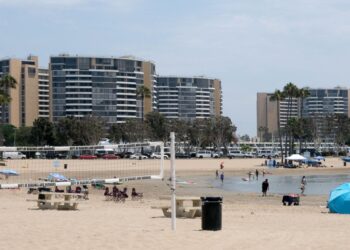Sixty years after its flagship Berkeley campus became the epicenter of a student free-speech movement, the University of California is once again at the center of debate over the cherished freedom of expression amid disputes at colleges around the country over the Israel-Hamas war.
On Wednesday, the UC Regents took up a proposed policy that would limit how campus departments could express opinions about contentious or complex issues on their publicly funded university websites. Demonstrators disrupted the meeting shortly after the policy was introduced for discussion. The regents returned to discuss the proposal and voted to consider adoption at their next meeting in May.
“What we are facing today is uncharted territory in many respects,” UC President Dr. Michael V. Drake said Wednesday as the meeting convened in Los Angeles. “We are navigating it actively. We are not always perfect, but we are learning and adjusting as we go.”
Regent Jay Sures, a Los Angeles talent agent leading the discussion on the policy, stressed that “preserving academic freedom and freedom of speech are absolutely imperative as we put a policy in place, if we put a policy in place.”
“In fact,” Sures added, “it is core to the mission of the University of California.”
Though the proposed policy isn’t specific to a particular subject matter, it comes in the wake of the Oct. 7 attack on Israeli civilians by Gaza-based Hamas terrorists in which 1,200 Israelis were killed and 250 taken hostage. The subsequent airstrikes by Israeli forces in Gaza has killed at least 30,000 people and destroyed much of Gaza’s buildings and infrastructure, causing a widespread humanitarian crisis.
Following the Oct. 7 attack, the UC Office of the President issued a statement condemning the “sickening and incomprehensible” violence and that “our expressions of grief extend to all innocent people affected by this ongoing conflict.”
But the UC Ethnic Studies Faculty Council
Read the full article here







